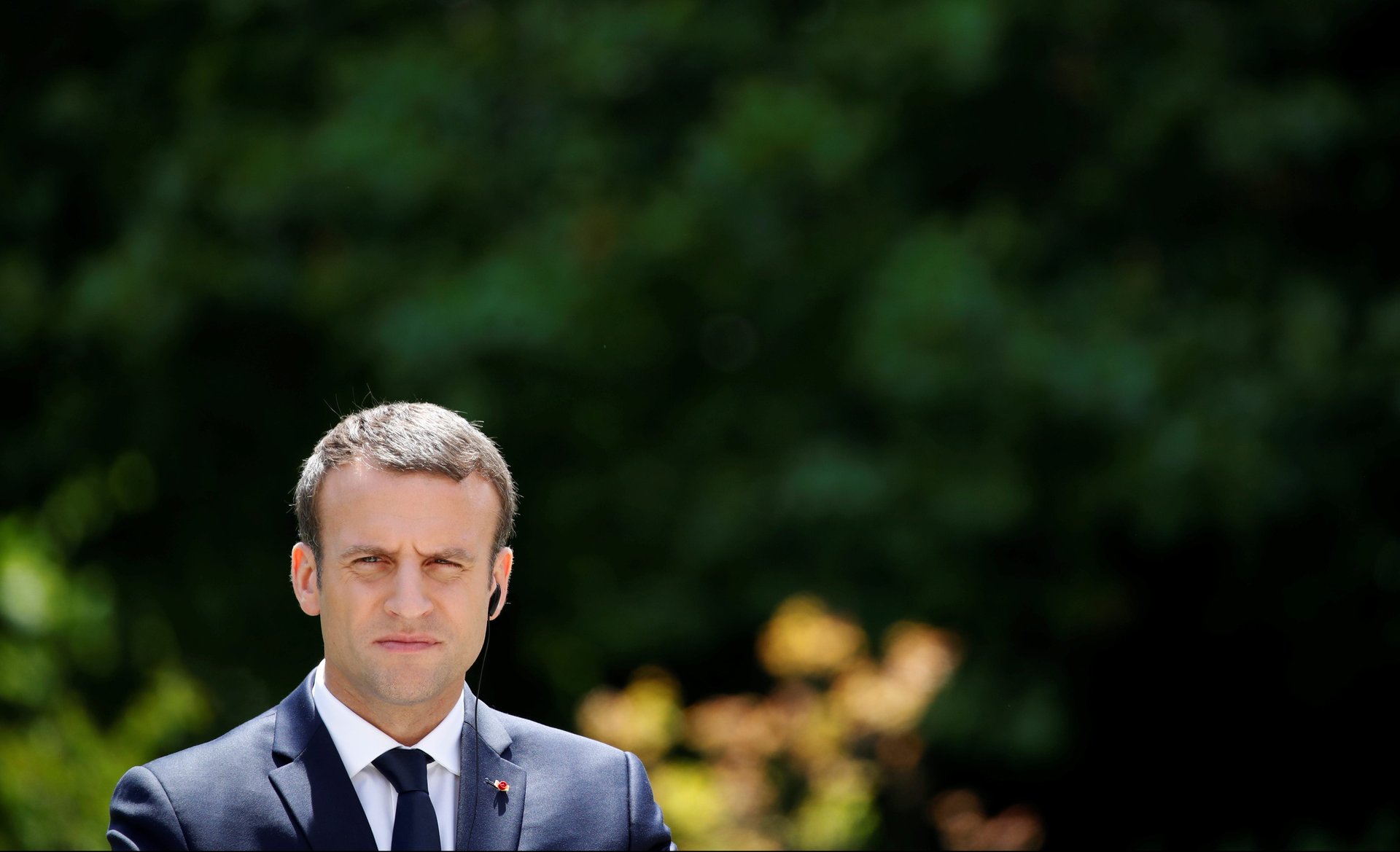The philosophical strategy underlying Emmanuel Macron’s favorite phrase
Before Emmanuel Macron became president of France, he was a Parisian philosophy student and spent two years working with the late French philosopher Paul Ricoeur.


Before Emmanuel Macron became president of France, he was a Parisian philosophy student and spent two years working with the late French philosopher Paul Ricoeur.
Ricouer wrote on a huge range of topics, including law, aesthetics, language, psychoanalysis, and ethics, and was known for maintaining a practical approach throughout. Whereas other philosophers attempt to come up with set formulas to meet every situation, Ricoeur always strove for balance and to reconcile various extreme views.
The effect on Macron is apparent in his practical approach to politics, which prompted him to form his own party and set him apart from the left- and right-wing ideologues who ran against him.
One clear marker of Ricoeur’s influence is a phrase Macron often uses: “et en même temps” (“and at the same time”). In a recent interview with the Irish Times, Eileen Brennan, a philosophy lecturer at Dublin City University, observes that Macron is prone to repeating the phrase when “he announces plans to do two seemingly incompatible things such as liberalising the labour market and protecting those in the most insecure positions.” (Brennan credits French philosopher Olivier Abel for noting the connection.)
Dan Stiver, a theology professor at Hardin-Simmons University, agrees that Macron’s attempts to do two seemingly contradictory things simultaneously is very much in keeping with Ricouer’s outlook.
“It’s characteristic of Ricouer that he puts disparate themes together and finds a mediating solution,” he tells Quartz. “In philosophy they often call that a dialectical approach, where you take two opposing or quite different positions and try to find a mediating position.”
Macron has a similarly practical approach, Stiver notes. “He’s careful about not being too unrealistic in making promises that he can’t deliver, and trying at the same time to be imaginative about the future and thinking about things that can be done,” he says, adding, “The problem is, in politics, you often have competing truths. You have to make a decision about which way to lean when you have different ethical impulses pulling in different directions.”
Though Ricouer was wary of absolute truths, he didn’t believe that one shouldn’t have convictions. One of the philosopher’s works is titled “Critique and Conviction,” which Stiver considers emblematic of Ricouer’s outlook. “It’s holding those two in balance that’s important,” he says. “What often happens is people go overboard on conviction but don’t have much critique, or get so caught up in critique they’re wondering whether there can be any convictions.”
Ricouer believed that a more practical attitude leads to better results.
And that’s the approach Macron seems to be taking with his centrist political views. He’s shown a willingness to ask others for advice on what to do, to work with both left- and right-wing cabinet ministers, and to reconcile seemingly contradictory ideas. Unlike populist leaders on the left and right today, Macron isn’t a fervent idealist. Instead, he’s happy to compromise.